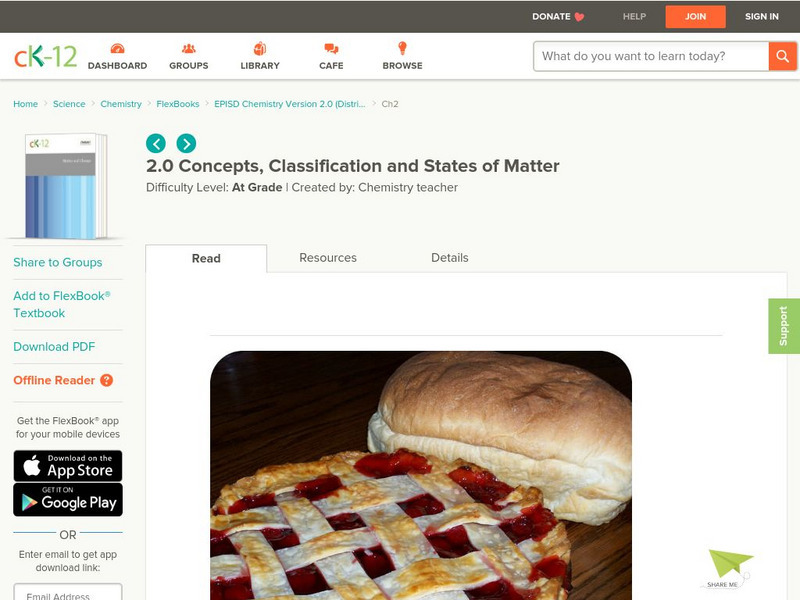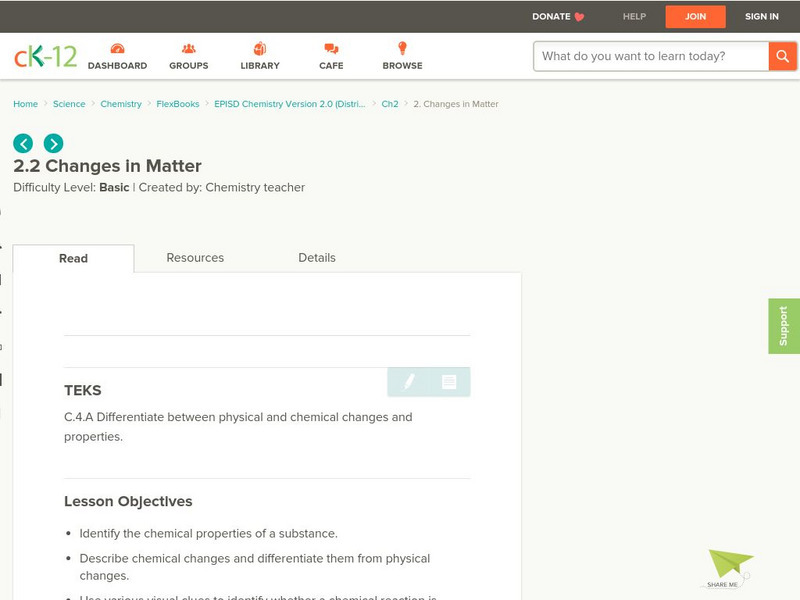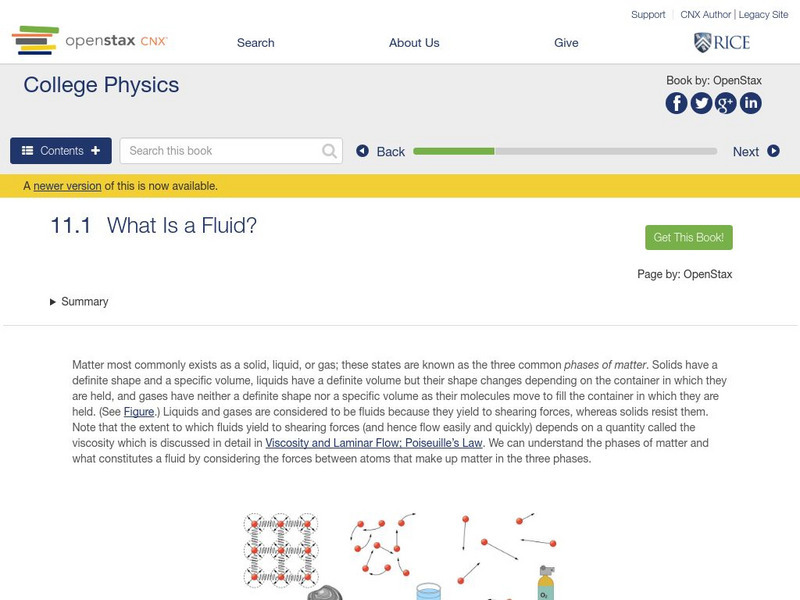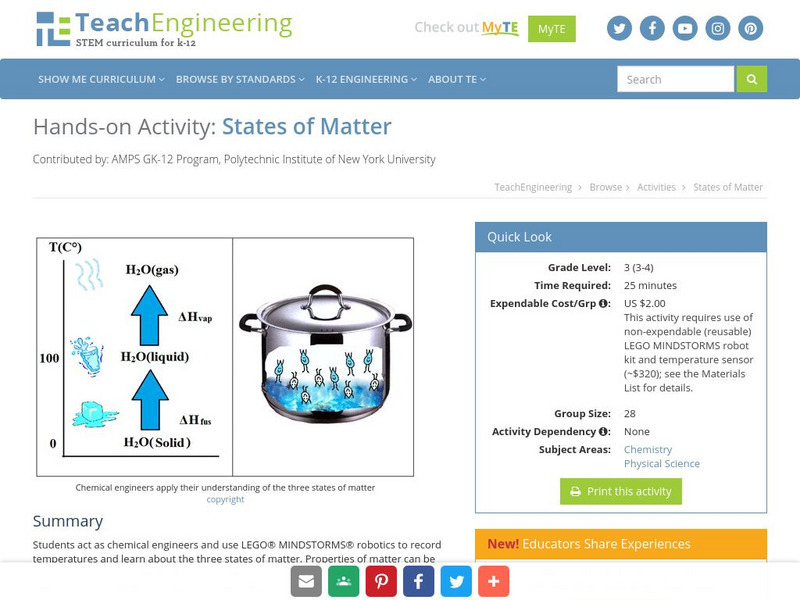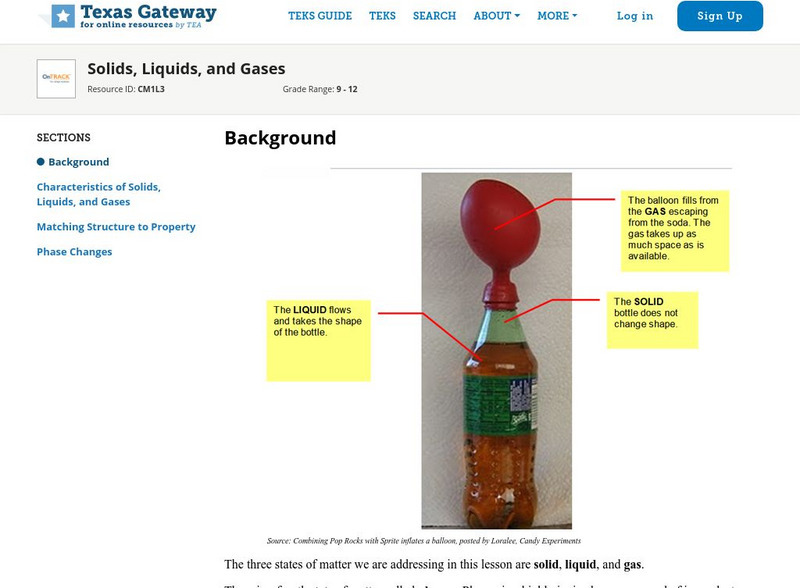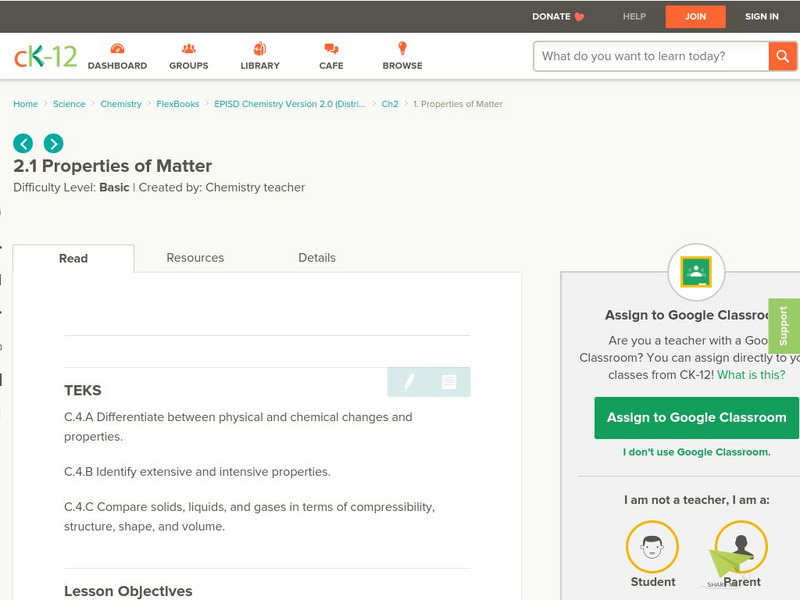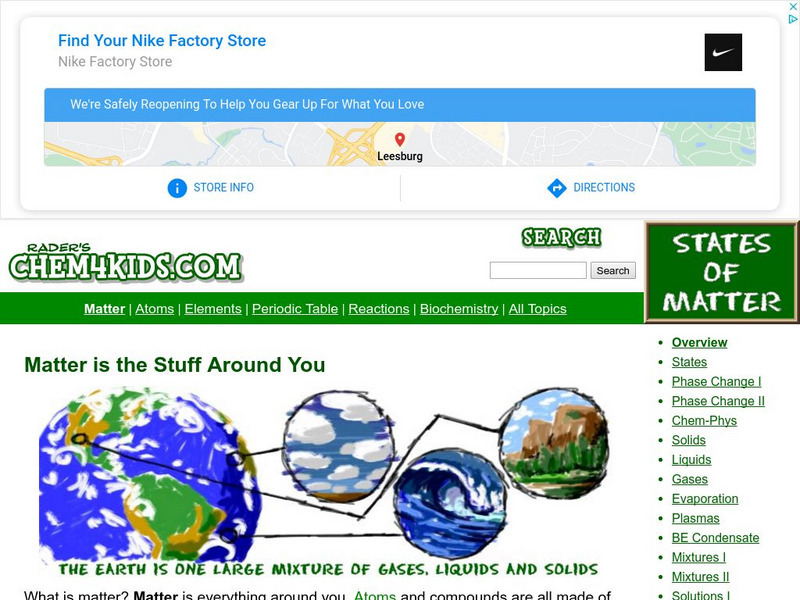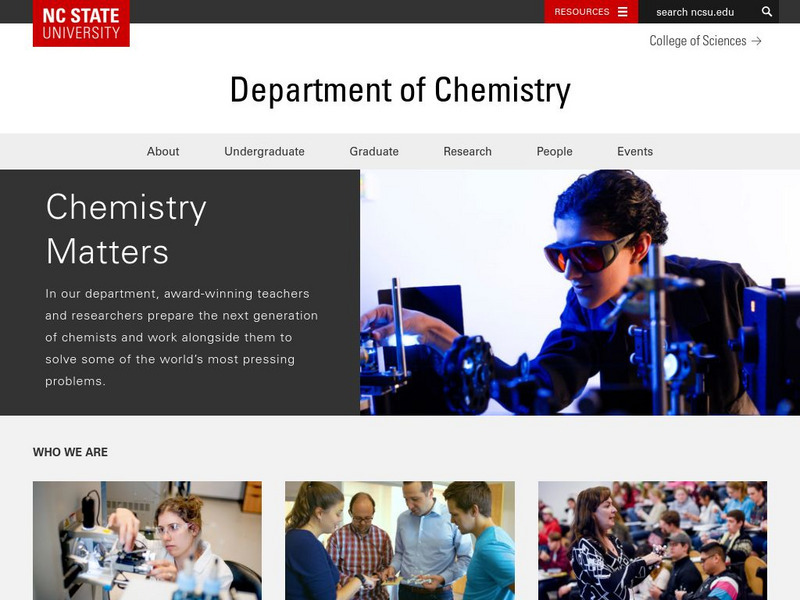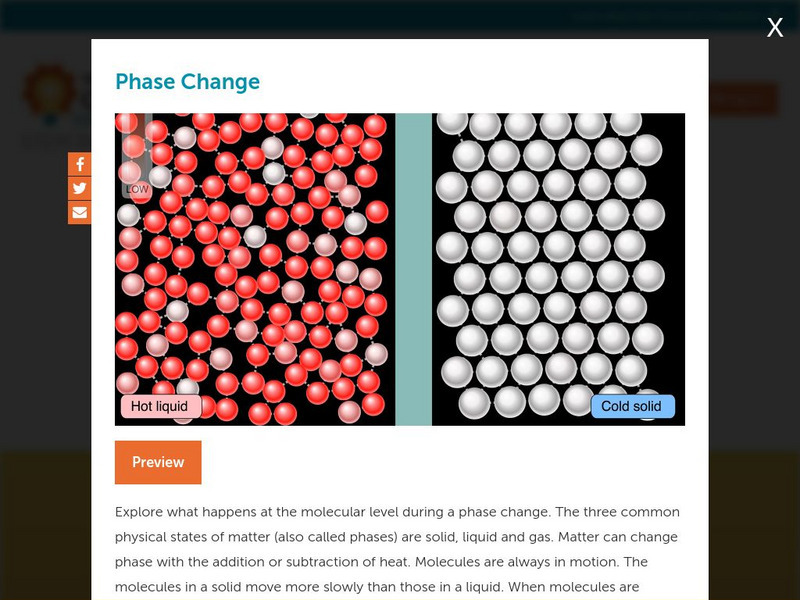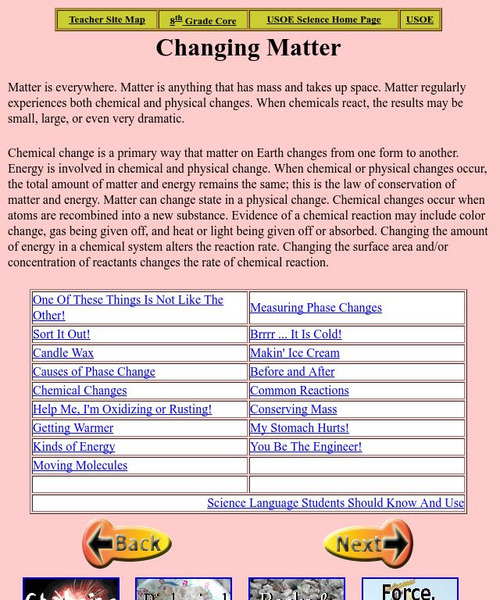Royal Society of Chemistry
Royal Society of Chemistry: Gridlocks: Level 1
A collection of grid puzzles that cover topics in basic chemistry, including acids, salts, alkalis, chemistry lab equipment, the periodic table, states of matter, and more. These are excellent for topic review and reinforcement. The...
CK-12 Foundation
Ck 12: Concepts, Classification and States of Matter
[Free Registration/Login may be required to access all resource tools.] Freshly baked bread and cherry pie are two delicious parts of any meal. What happens to the ingredients that go into the bread and the pie as they are heated in the...
CK-12 Foundation
Ck 12: Changes in Matter
[Free Registration/Login may be required to access all resource tools.] In the following online tutorial students identify the chemical properties of a substance and describe chemical changes and differentiate them from physical changes....
OpenStax
Open Stax: What Is a Fluid?
From a chapter on Fluid Statics in a Physics textbook. This introductory section of the chapter covers the three common phases of matter, their physical properties, and how atoms are arranged in solids, liquids, and gases. Includes a...
American Chemical Society
American Chemical Society: Science for Kids: Solids, Liquids and Gases
Engaging hands on science lessons for grades 2-6 on the three states of matter.
TeachEngineering
Teach Engineering: States of Matter
Students act as chemical engineers and use LEGO MINDSTORMS NXT robotics to record temperatures and learn about the three states of matter. Properties of matter can be measured in various ways, including volume, mass, density and...
Texas Education Agency
Texas Gateway: Solids, Liquids, and Gases
Given descriptions, scenarios, or illustrations, students will distinguish between the compressibility, structure, shape, and volume of solids, liquids, and gases.
CK-12 Foundation
Ck 12: Properties of Matter
[Free Registration/Login may be required to access all resource tools.] In this online tutorial, students will begin to understand a substance according to its physical properties. Learn to distinguish between extensive and intensive...
Chem4kids
Chem4 Kids: Plasma
Here you can learn all about plasma. Explore what plasma is, its basic characteristics, and how plasma is created.
Chem4kids
Chem4 Kids: Matter
"Matter is everything." So begins this comprehensive website on the physical and chemical properties of matter in its four main states: solids, liquids, gases, and plasmas. The text is large and easy-to-read. Students will enjoy the...
eSchool Today
E School Today: What Is Matter
Learn about matter, its three states, changes of state, how matter behaves, and physical and chemical changes in matter.
McCracken County Schools
Mc Cracken County Schools: Structure and Properties of Matter
This expansive unit created by McCracken County Schools focuses on the properties of matter. Multiple lessons focus on the concept of scientific modeling of matter particles. Included in this unit are various activities to reach all...
NASA
Nasa: Atoms and Molecules in Motion, States of Matter [Pdf]
Everythingin the universeis either matter or energy. All matter is made of combinations of about one hundred basic building blocks, the chemical elements on the periodic table. Going a step further and breaking these elements down to...
NC State University
Nc State University: States of Matter Activities
Educational site provides activities for teachers to use to teach the states of matter as well as provides videos to supplement instruction.
Concord Consortium
Concord Consortium: Stem Resources: Phase Changes
This activity reviews of states of matter, then relates them to atomic movement as it is affected by attractions between atoms and the addition of energy. Latent heat and evaporative cooling are also topics covered. Multiple-choice and...
Concord Consortium
Concord Consortium: Stem Resources: States of Matter
Using simulations observe what solids, liquids, and gases look like at the atomic scale. After observing the different states of matter at their atomic level, students will be able to conclude about the forces and attractions that exist...
Utah Education Network
Uen: Liquid Exploration
Observe the differences between solids, liquids and gases.
Utah State Office of Education
Utah Science: Changing Matter
Matter changes both physically and chemically on a fairly regular basis. Through these activities students will challenge their understanding of the changes that may take place with different types of matter.
TED Talks
Ted: Ted Ed: The Abc's of Gas: Avogadro, Boyle, Charles
In this video, Brian Bennett defines Boyle's Law, Charles' Law, and Avogadro's Law to help describe the properties of gas. [2:50] Followed by a short quiz and a list of additional resources to explore.
American Chemical Society
Middle School Chemistry: Changing State: Evaporation
Students build a model of a water molecule and design an experiment to see if adding energy affects the rate of evaporation.
PBS
Pbs Learning Media: States of Matter Fitness Lesson Plan
In this lesson plan, students use their science knowledge and apply it using physical activity! Learning about the stages of matter, solid, liquid and gas, students perform an exercise for each as the teacher calls out an object such as...
University of Florida
Florida Museum of Natural History: Kitchen Science
This guide focuses on everyday substances and how we can change their properties by adding heat or cold, physically manipulating them, or mixing them together.
Children's Museum
The Children's Museum of Indianapolis: Exploding Baggies
Young scholars will witness a fascinating chemical reaction and learn how to identify when a reaction has occurred by combining simple ingredients.
Children's Museum
The Children's Museum of Indianapolis: Color Changing Milk
Young scholars observe a molecular dance of bursting colors through exploring states of matter and learning that materials can be characterize by how they respond to water.



